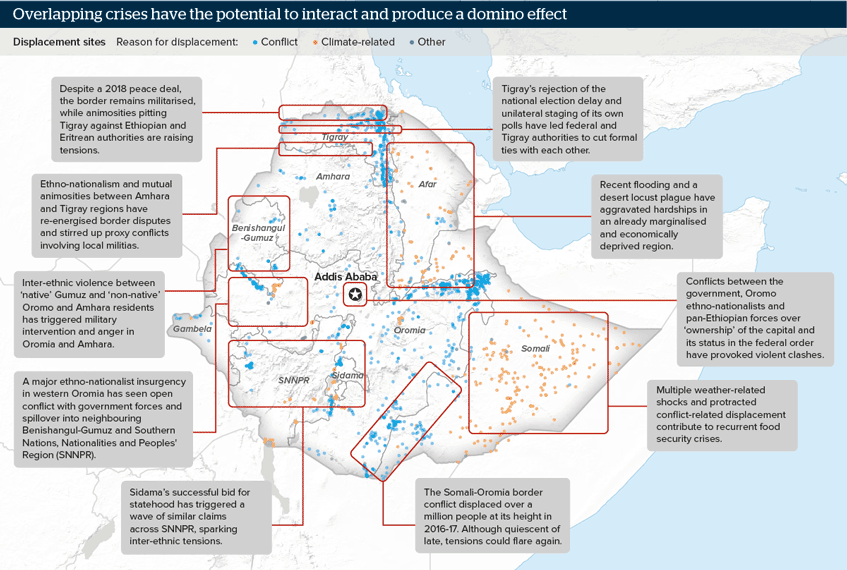Multiple crises may unravel Ethiopia’s transition
An ambitious reform agenda is faltering amid interrelated national and regional crises and brinkmanship on all sides
Source: IOM; Oxford Analytica
Outlook
On October 6, Ethiopia’s parliament entered its sixth year (despite having a five-year mandate) after the House of Federation authorised an election delay due to the COVID-19 pandemic.
The elections were once seen as a potential milestone in Ethiopia’s transformation from an authoritarian, one-party state into a functioning multi-party democracy. Even before the election delay, this narrative had started to crumble. Now, accusations of unconstitutional and anti-democratic behaviour are being traded across the political spectrum.
Rising political polarisation and competing visions for Ethiopia’s future will make finding a path out of the crisis extremely difficult, while multiple, overlapping flashpoints across the country threaten to destabilise the situation further.
Impacts
- Elections may ultimately prove a major source of destabilisation if the government cannot ease tensions with its critics before the polls.
- Dialogue is the only realistic route out of the crisis but will be dead on arrival unless preceded by serious concessions on all sides.
- Trials of key opposition leaders will fuel allegations of authoritarianism and deepen political polarisation.
- Political turmoil will complicate efforts to stabilise the economy, while worsening economic conditions will fuel popular unrest.
See also
- Ethiopia’s Tigray troubles are far from over - Nov 26, 2020
- Ethnic attack may deepen Ethiopia’s federal faultlines - Nov 3, 2020
- End of Ethiopia’s emergency will not ease poll tension - Sep 14, 2020
- More graphic analysis
